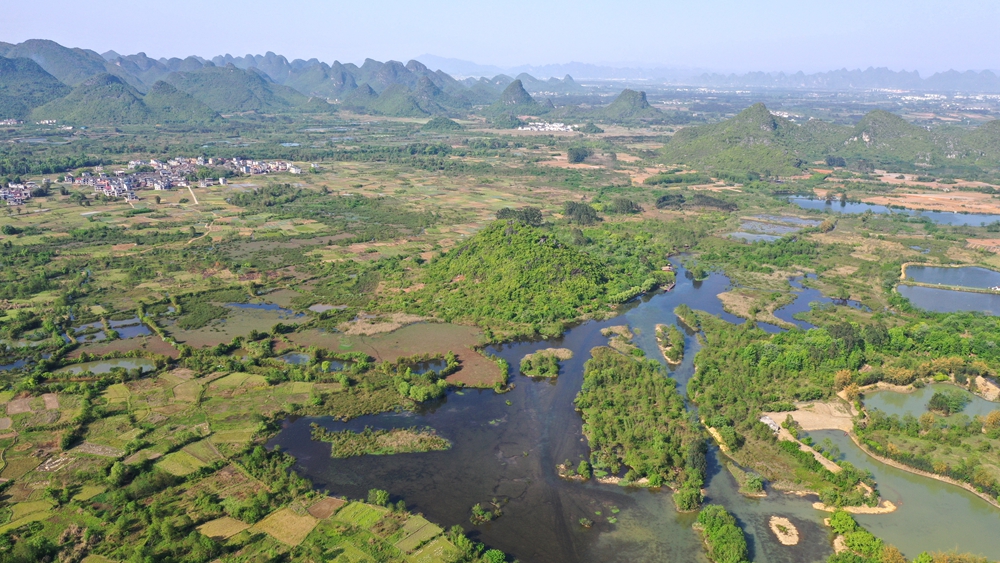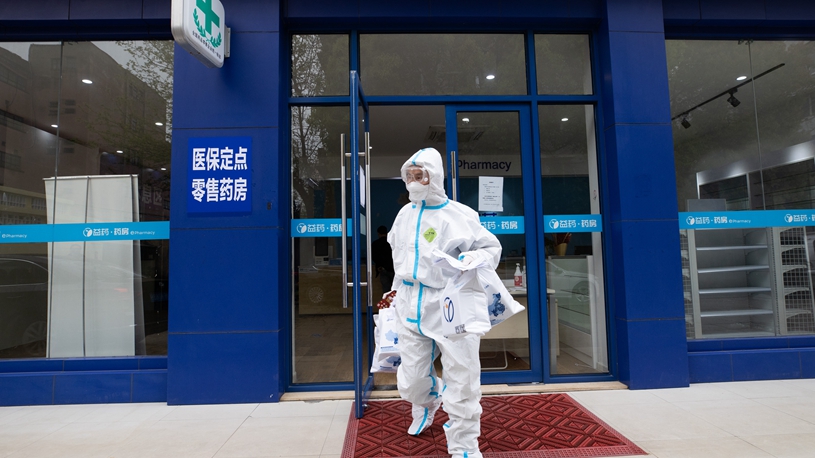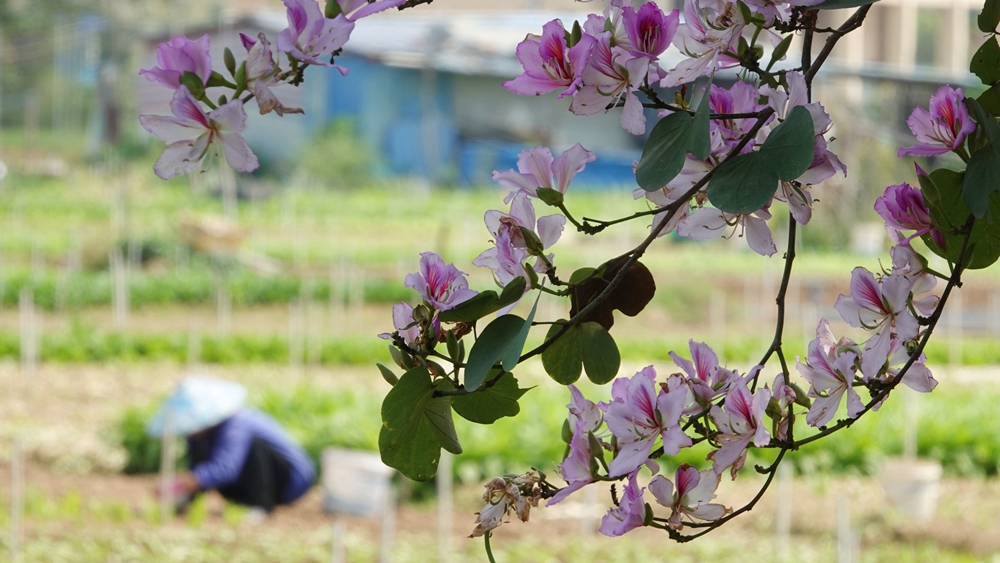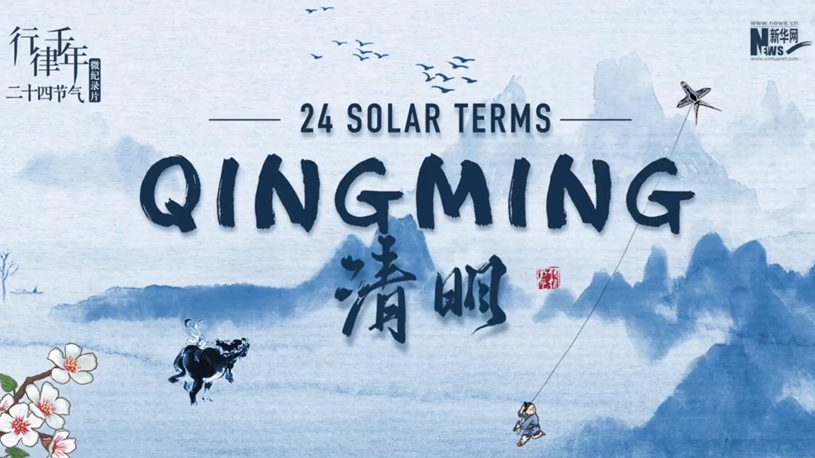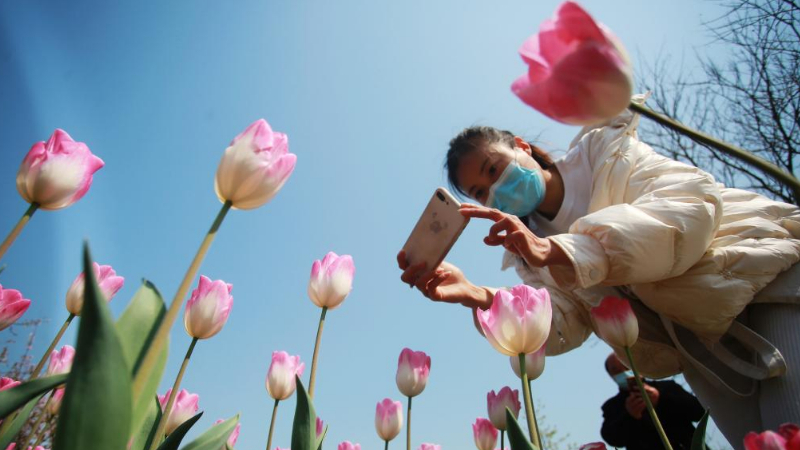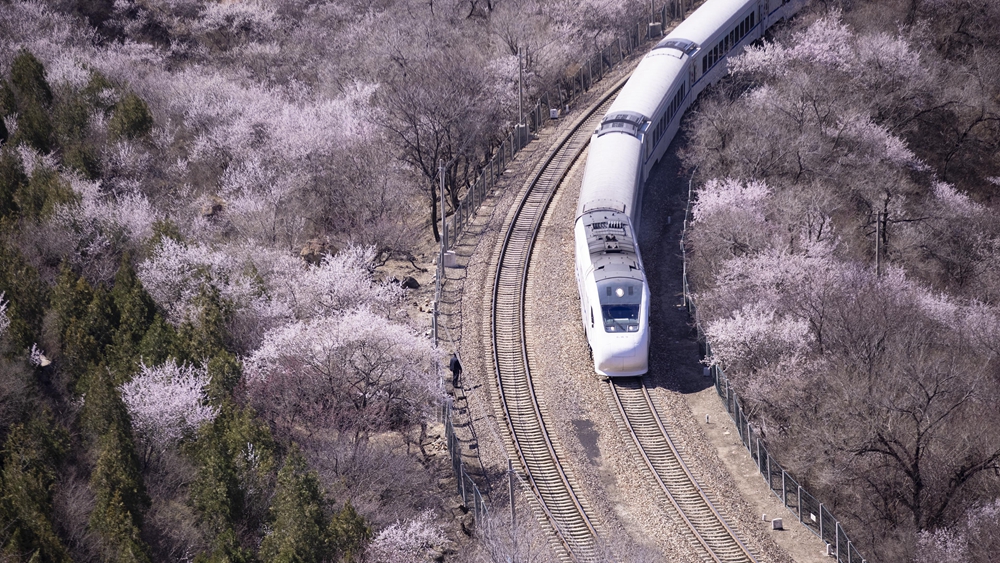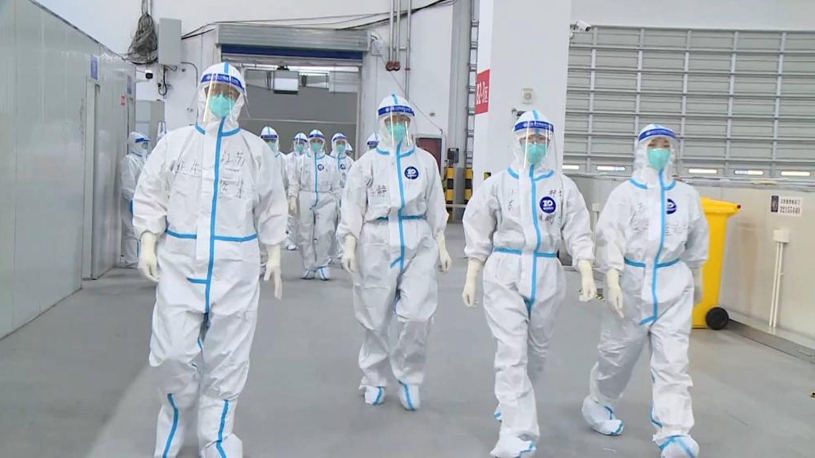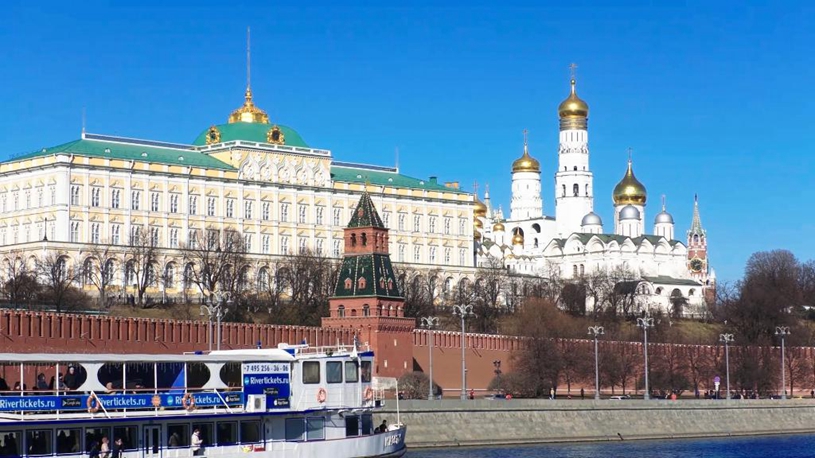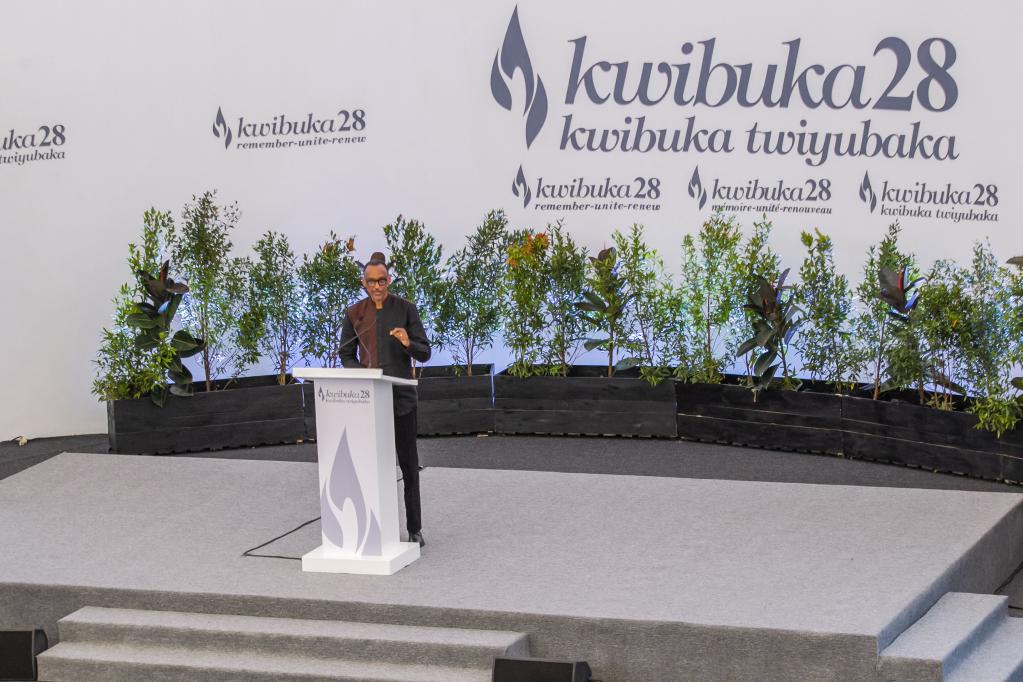
Rwandan President Paul Kagame delivers his keynote speech at the Kigali Genocide Memorial in Kigali, the capital of Rwanda, on April 7, 2022. (Photo by Cyril Ndegeya/Xinhua)
Rwandan President Paul Kagame on Thursday slammed countries covering up acts of the perpetrators of the 1994 genocide against the Tutsi, as Rwandans marked the 28th anniversary of the massacres.
KIGALI, April 8 (Xinhua) -- Rwandan President Paul Kagame on Thursday slammed countries covering up acts of the perpetrators of the 1994 genocide against the Tutsi, as Rwandans marked the 28th anniversary of the massacres.
Kagame made the remarks at the Kigali Genocide Memorial, the final resting place for more than 250,000 victims of the genocide, in Kigali, the Rwandan capital.
Kagame said that some of the genocide perpetrators and accomplices roam freely in different countries.
"The very reasons that we suffered and endured, is the reason, they cannot give us peace, they want to cover up their responsibility, silence when the millions of people in Rwanda needed them to speak out, speak up and come to their help," Kagame said.
He reminded the audience that the Rwanda Patriotic Army (RPA) restrained itself from revenging against the genocide perpetrators.
Kagame also told off those questioning Rwanda's justice system the basis of which some countries are reluctant to extradite genocide suspects to Kigali.
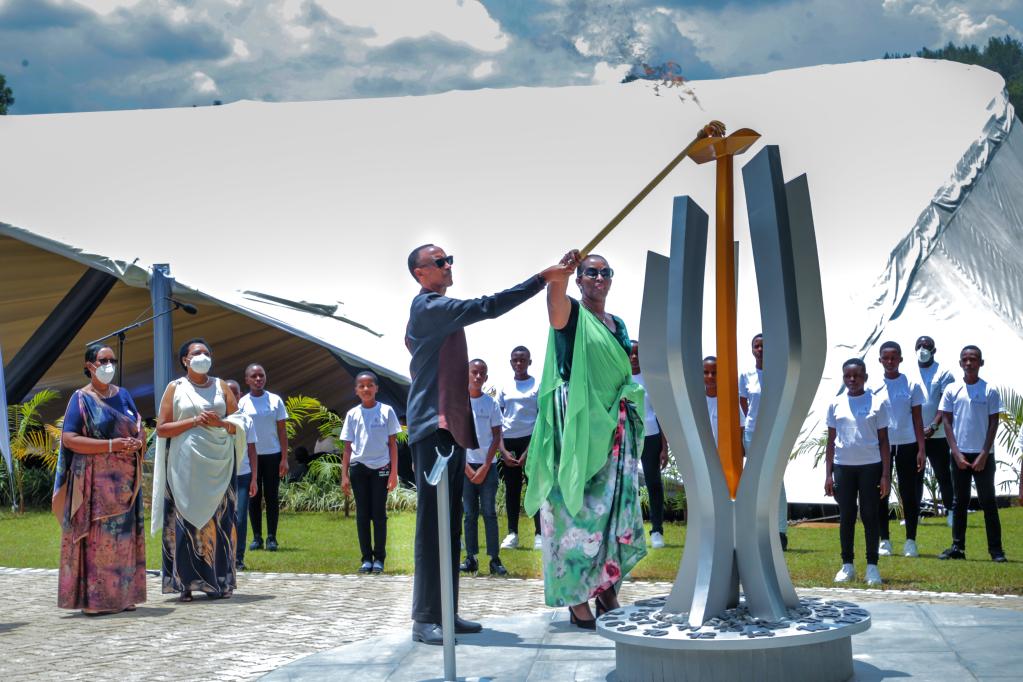
Rwandan President Paul Kagame (C) and first lady Jeannette Kagame light a flame of remembrance at the Kigali Genocide Memorial in Kigali, the capital of Rwanda, on April 7, 2022. (Photo by Cyril Ndegeya/Xinhua)
"We are a small country but we are big on justice and some of those are big and powerful countries but they are very small on justice," he said. "They have no lessons to teach anyone because they are part of this history that saw over 1 million of our people perish. They are the cause and Rwandans just executed, killed their fellow Rwandans."
More than 1,000 Rwanda genocide suspects are still at large in regional countries and overseas, according to Rwanda's Genocide Fugitives Tracking Unit.
The Rwandan leader also criticized "powering countries" for blocking channels to voices of truth in the face of falsehood about Rwanda and the genocide.
Earlier, the president along with the first lady Jeannette Kagame as well as other dignitaries laid wreaths at the memorial, before lighting the flame of remembrance to mark the start of the genocide mourning week.
Some Rwandans said they still felt emotional while recalling the massacres, which marked the darkest page of the country's history.
"My thoughts are with our beloved ones, 1 million victims of genocide against Tutsi. Our sorrow cannot be cured. I remember the anxiety, fear, humiliation, and suffering. But our heartache is lessened by the choice we made to raise our kids in a Rwanda free of discrimination," said Diane Gashumba, Rwanda's Ambassador to Sweden.
"It is a really painful experience recalling that dark past. I was just a kid when the genocide happened and it left a dent on my life. The memories of the massacres are still fresh like it happened yesterday in my hometown in Nyamata," a survivor who identified herself only as Jeannette told Xinhua.
Naphtal Ahishakiye, the executive secretary of the umbrella body of genocide survivors' organizations (IBUKA), said genocide denial remains a concern requiring international collaboration.
"There is a need for collaboration to stop genocide denial through relevant legislation. Besides, all genocide fugitives need to be prosecuted," Ahishakiye said.
This year's genocide commemoration is observed under the theme "Remember, Unite and Renew." Throughout the mourning week, the Rwandan flag will be flying at half-mast in honor of the victims.
Rwandans gathered in their respective villages to commemorate genocide where a wide range of discussions on national unity, reconciliation and prevention of genocide ideology and revisionism were held.
After national mourning week, genocide commemoration activities will continue until July 4 to mark the 100-day calamity, during which more than 1 million people, mainly Tutsi and moderate Hutus were killed. Perpetrators included extremists from Hutu ethnic group and Interahamwe, the youth wing of the then ruling party.
Defense and police forces also participated and this challenged efforts of the Tutsi who, in some areas, had tried to resist traditional weapons of the killers. ■

